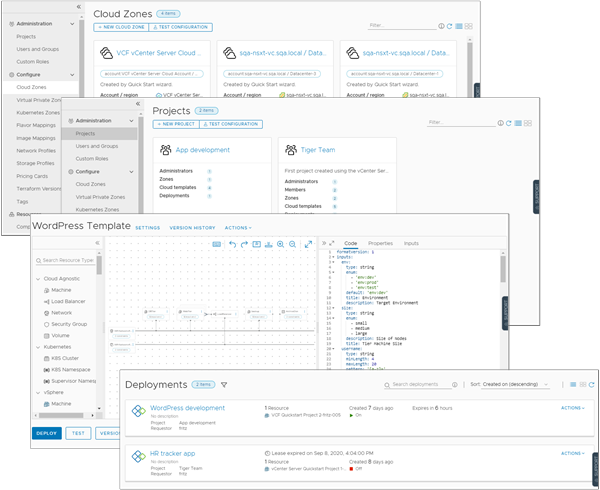You use VMware Aria Automation Assembler to connect to your public and private cloud providers so that you can deploy machines, applications, and services that you create to those resources. You and your teams develop cloud-templates-as-code in an environment that supports an iterative workflow, from development to testing to production. At provisioning time, you can deploy across a range of cloud vendors. The service is a managed VMware SaaS and NaaS-based framework.
How to use Automation Assembler
An overview of
Automation Assembler includes the following basic functions.

- The Home tab shows a summary of your resources, deployments, and other inventory currently managed by VMware Aria Automation, as well as pending notifications and action items. This tab is available to Assembler Administrators only.
- The Resources tab shows the current status of your provisioned, discovered, onboarded, and other resources. You can access resource details and day 2 actions that you use to manage your resources.
- The Design tab is your development home. You use the canvas and the YAML editor to develop and then deploy your machines and applications.
- The Infrastructure tab is where you add and organize your cloud vendor resources and users. This tab also provides information about deployed cloud templates.
- The Extensibility tab is where you can extend and automate your application life cycles. You can subscribe to events that are used to trigger extensibility actions or VMware Aria Automation Orchestrator workflows.
- An Alerts tab provides notifications regarding capacity, performance, and availability for your infrastructure resources. You must have a configured integration with VMware Aria Operations to see and use the alerts.
- The Tenant Management tab shows the different tenants that you configured if you are a service provider and enables you allocate or de-allocate virtual private zones.
